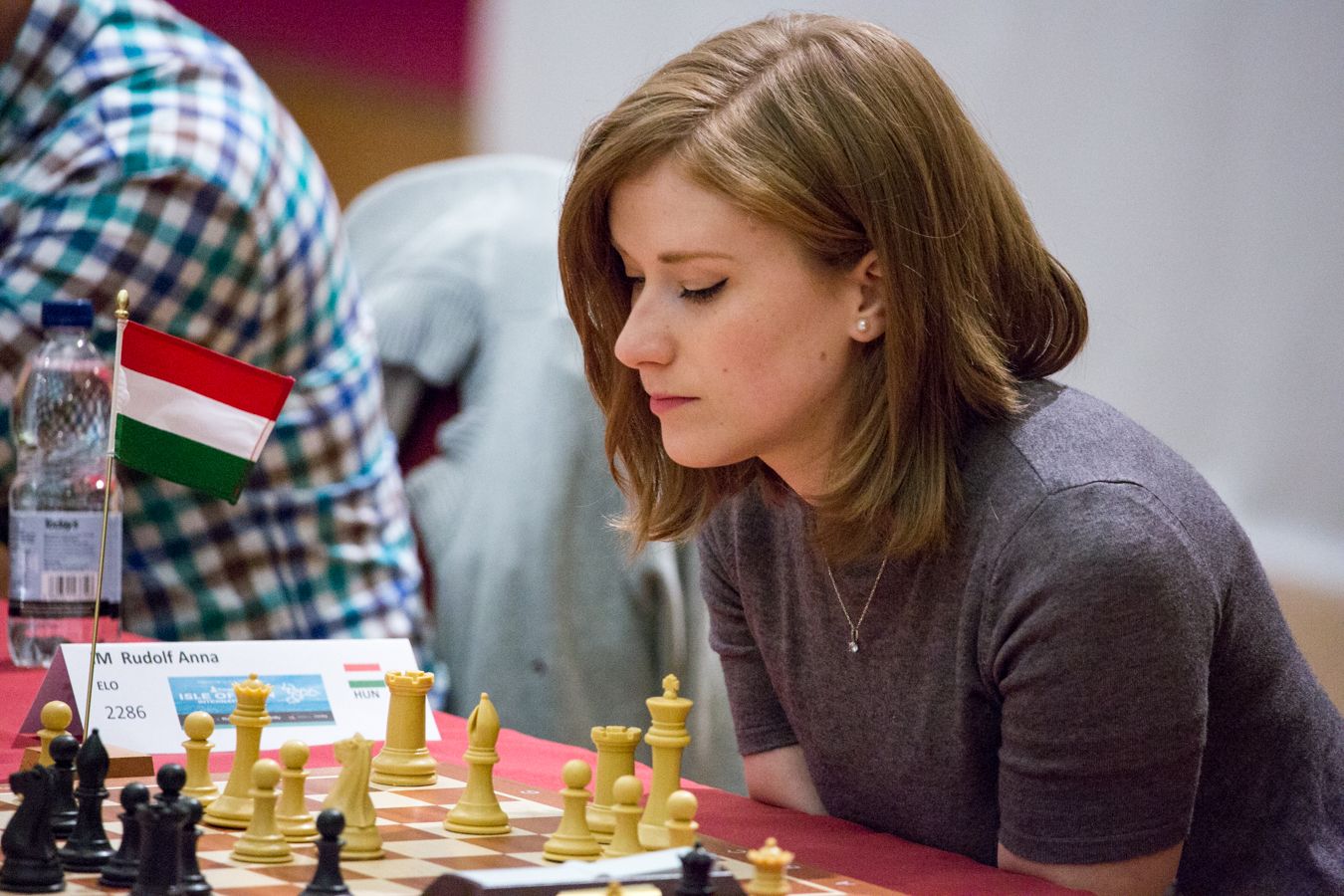Image provided by chess.com. Top: Hungarian chess player Anna Rudolf in a match.
Imagine going to a school where out of 1710 students, only 37 are female. That’s how ridiculous the difference between male and female grandmasters is in chess. Many people aren’t familiar with the gender disparity in competitive chess, and the steps that are being taken to close this gap. Chess is a male-dominated game, which is apparent from the difference between male and female Grandmasters, 1683 versus 37. When taking into account the total number of active chess players, the disparity only increases. To encourage more women to become chess players, there are more easily obtainable women-specific chess titles designed under the assumption that if it is easier to get a title, more women will want to play. For example, the Grandmaster title requires a score of 2500 to obtain, while a Women’s Grandmaster title needs a score of 2300. However, women don’t have to accept these titles; they can reject them to continue improving their score and acquire a general title instead.
Those that encourage these titles say that it is needed to encourage more women to enter the competitive chess scene. Having these titles means that more women in chess will be recognized, and may inspire many more young girls to start playing chess. There are 317 active WGMs (Women Grandmasters) as of 2021, and people argue that this is an indication that success is achievable for women in chess. Jai Jagpal, a sophomore from Washington High also claims that “the titles are beneficial to women” because there must be different distinctions “for the skill levels of different players.” This would lead to more people trying to get the titles, which is good for decreasing the gender disparity in chess.
The opposing side would argue that chess is an intellectual game that does not need separate, gendered categories. Ansh Gupta, a senior at WHS, feels that the titles “incorrectly imply that the cognitive power of men and women is different.” If there was no real difference in the minds of men and women chess players, then there should be no need to create separate titles for women; it might even “[imply] that [the] male counterparts are better.” Along with Ansh, many other chess players agree that having a lower bar implies that people expect less from women and thus view women as inferior. For this reason, players like GM Judit Polgár refuse to accept the Women’s title and only play in open matches, proving that their gender has nothing to do with the outcome of their game. Ansh also says that the purpose of these women chess titles are not being fulfilled, that “[he] cannot think of a single line of reasoning that would lead somebody to start playing chess JUST because it was easier to become a woman grandmaster rather than a regular grandmaster.”
If there was no real difference in the minds of men and women chess players, then there should be no need to create separate titles for women.
The existence of these titles leads many to wonder why women don’t participate in chess as much and why women don’t stick to chess when they do participate. The answer to this is the aggressive sexism that they face when trying to participate. A clear example of this is when grandmaster Bobby Fischer, in an interview in 1962, said that “[women are] stupid compared to men. They shouldn’t play chess, you know. They lose every single game against a man.” Comments like these have discouraged women from pursuing chess because they would constantly be berated for trying. Even if they ignored the comments and proved their skill, they would still face sexism. Anna Rudolf, an International Master and Woman Grandmaster, says that in a 2007 tournament she was a part of, she was accused of cheating by having a microchip in her lip balm that connected to the internet and showed her the best move. All of these experiences show that being a woman in chess wouldn’t be favorable for many young women, which may steer them away from trying chess competitively, maintaining the disparity between the number of male and female active chess players. So regardless of whether or not the women titles get removed, this sentiment that dissuades women from pursuing chess must be eliminated.
Advik Kunta is a senior at Washington High School and has lived in Fremont his entire life. This is his first year at the paper and he's excited to write opinion pieces. His hobbies include watching movies and TV shows, reading books, and playing video games. Some of his favorite movies include The Perks of Being a Wallflower, The Lord of the Rings trilogy, and Spider-Man: Into the Spiderverse. His future plans include going to college and majoring in Computer Science.

